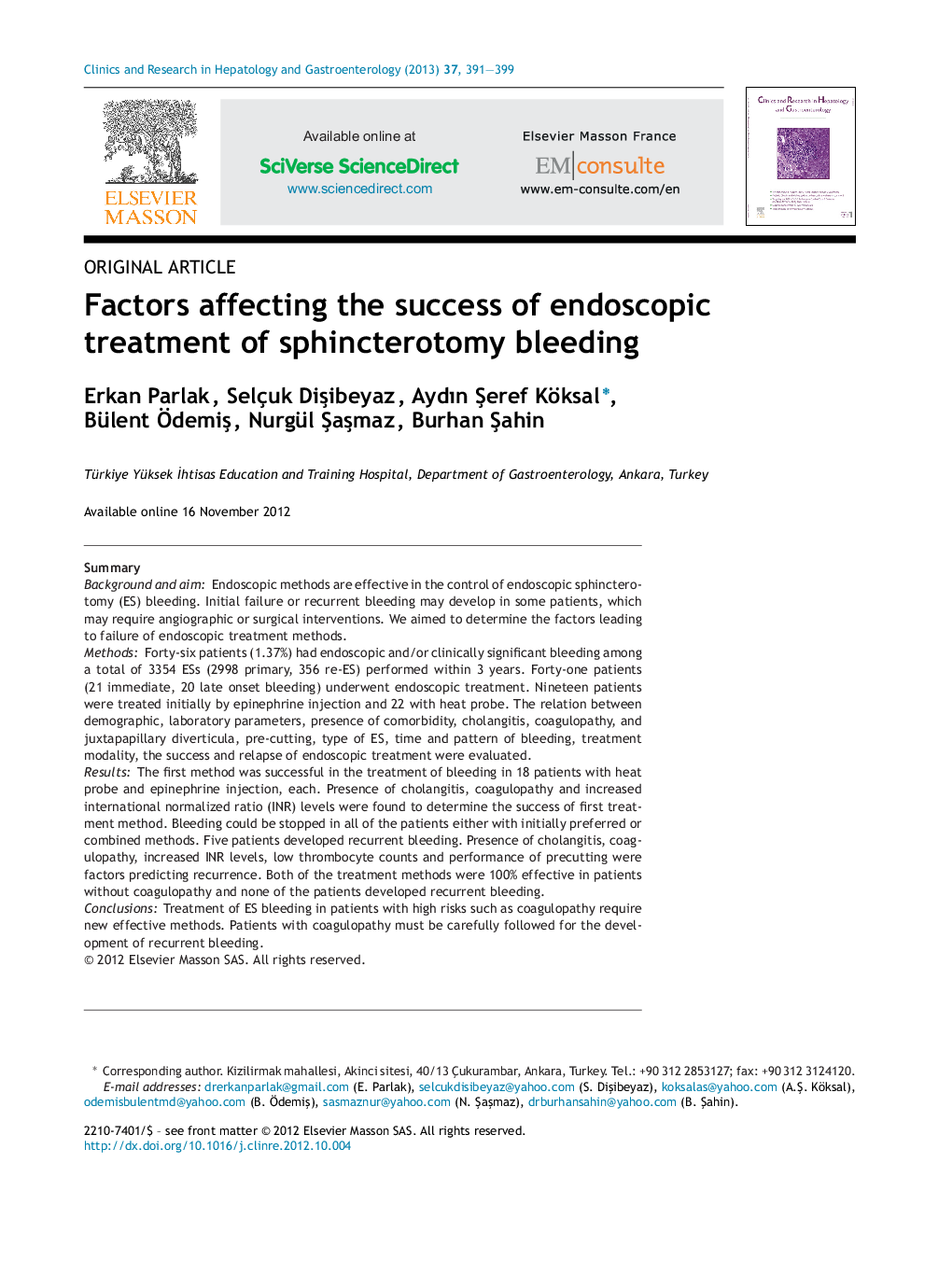| کد مقاله | کد نشریه | سال انتشار | مقاله انگلیسی | نسخه تمام متن |
|---|---|---|---|---|
| 3286623 | 1209305 | 2013 | 9 صفحه PDF | دانلود رایگان |

SummaryBackground and aimEndoscopic methods are effective in the control of endoscopic sphincterotomy (ES) bleeding. Initial failure or recurrent bleeding may develop in some patients, which may require angiographic or surgical interventions. We aimed to determine the factors leading to failure of endoscopic treatment methods.MethodsForty-six patients (1.37%) had endoscopic and/or clinically significant bleeding among a total of 3354 ESs (2998 primary, 356 re-ES) performed within 3 years. Forty-one patients (21 immediate, 20 late onset bleeding) underwent endoscopic treatment. Nineteen patients were treated initially by epinephrine injection and 22 with heat probe. The relation between demographic, laboratory parameters, presence of comorbidity, cholangitis, coagulopathy, and juxtapapillary diverticula, pre-cutting, type of ES, time and pattern of bleeding, treatment modality, the success and relapse of endoscopic treatment were evaluated.ResultsThe first method was successful in the treatment of bleeding in 18 patients with heat probe and epinephrine injection, each. Presence of cholangitis, coagulopathy and increased international normalized ratio (INR) levels were found to determine the success of first treatment method. Bleeding could be stopped in all of the patients either with initially preferred or combined methods. Five patients developed recurrent bleeding. Presence of cholangitis, coagulopathy, increased INR levels, low thrombocyte counts and performance of precutting were factors predicting recurrence. Both of the treatment methods were 100% effective in patients without coagulopathy and none of the patients developed recurrent bleeding.ConclusionsTreatment of ES bleeding in patients with high risks such as coagulopathy require new effective methods. Patients with coagulopathy must be carefully followed for the development of recurrent bleeding.
Journal: Clinics and Research in Hepatology and Gastroenterology - Volume 37, Issue 4, September 2013, Pages 391–399